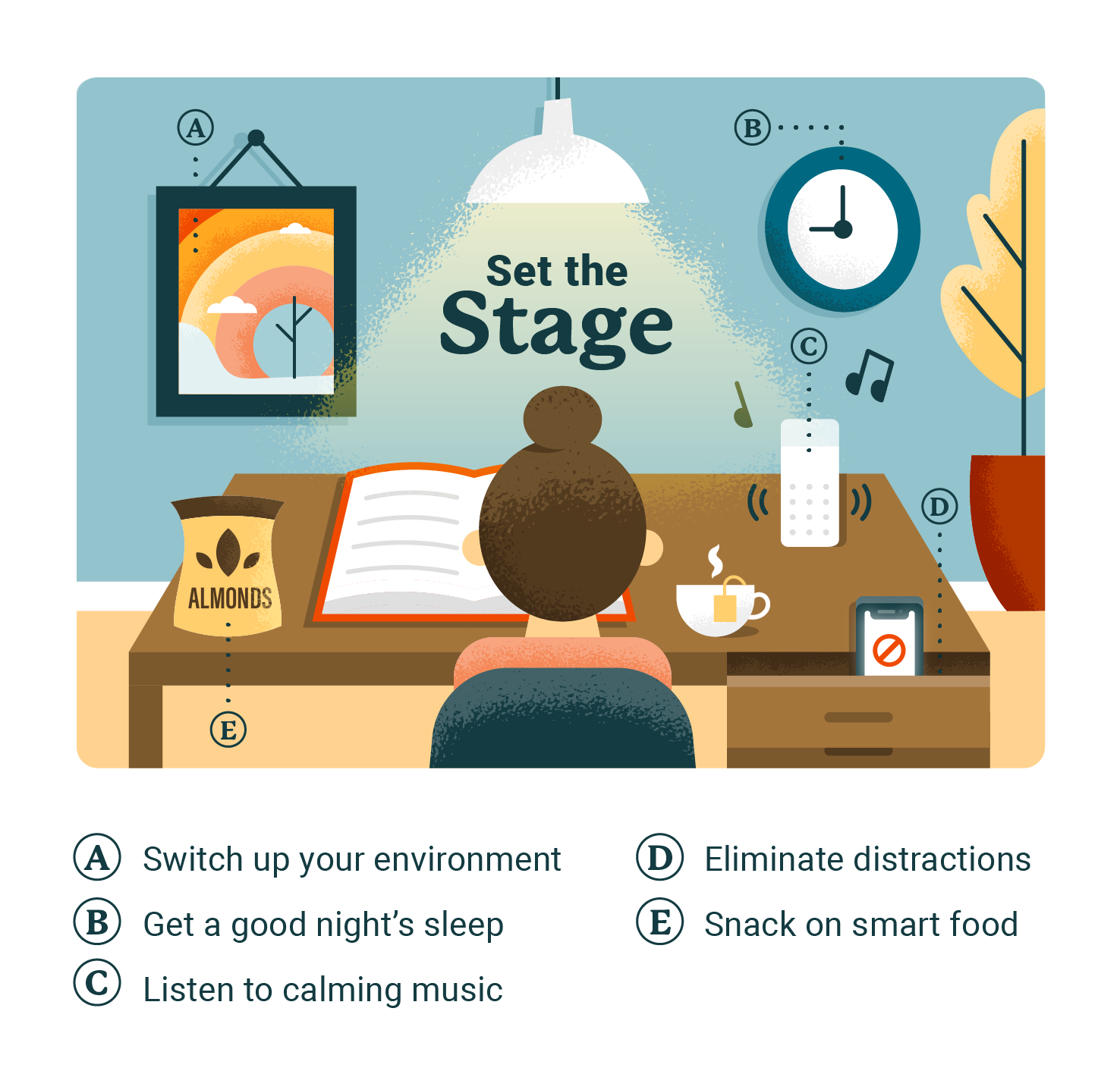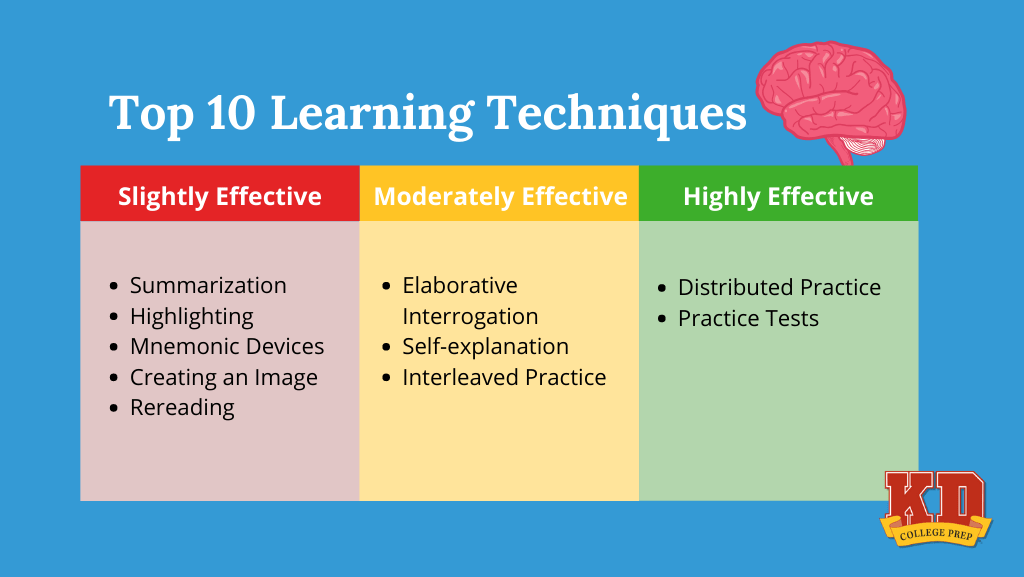Top 5 Tips To Study Efficiently? Yeah, you know, acing exams isn’t about pulling all-nighters fueled by ramen. It’s about smart studying. This isn’t your grandma’s study guide; we’re diving into practical strategies to boost your focus, retention, and overall academic game. We’ll cover time management hacks, note-taking ninja moves, environment optimization, active learning techniques, and even how to leverage teamwork.
Get ready to level up your study skills!
From mastering the Pomodoro Technique to building killer study groups, we’ll equip you with the tools to conquer even the toughest coursework. Think of this as your secret weapon for academic success – less stress, more understanding, and better grades. Let’s ditch the cram sessions and embrace a smarter approach to learning.
Time Management Techniques
Effective time management is crucial for successful studying. A well-structured schedule, combined with focused study techniques, can significantly improve your academic performance and reduce stress. This section explores various time management strategies to help you optimize your study time.
Weekly Study Schedule Design
A sample weekly study schedule might allocate specific days and times for different subjects, incorporating regular breaks. For example, Mondays could be dedicated to math from 9 AM to 11 AM, followed by a 15-minute break, then English from 11:15 AM to 1 PM. Tuesdays might focus on history and science, and so on. The key is consistency and incorporating breaks to prevent burnout.
Breaks could include short walks, stretching, or simply a few minutes to relax and clear your head.
The Pomodoro Technique
The Pomodoro Technique involves working in focused bursts (typically 25 minutes) followed by a short break (usually 5 minutes). After four Pomodoros, a longer break (15-20 minutes) is recommended. This technique promotes concentration and prevents mental fatigue. The structured breaks are essential for maintaining focus throughout longer study sessions. Many students find this technique incredibly effective for maintaining concentration and preventing burnout.
Time Blocking vs. Flexible Scheduling
Time blocking involves pre-allocating specific time slots for particular tasks. Flexible scheduling, on the other hand, allows for more adaptability, adjusting the schedule based on daily priorities and energy levels. Time blocking is best for students who thrive on structure, while flexible scheduling suits those who prefer more spontaneity. The best approach depends on individual preferences and learning styles.
Prioritizing Tasks
Three effective methods for prioritizing tasks are:
- Eisenhower Matrix (Urgent/Important): Categorize tasks based on urgency and importance. Urgent and important tasks are tackled first, followed by important but not urgent, then urgent but not important, and finally, neither urgent nor important tasks are delegated or eliminated.
- Pareto Principle (80/20 Rule): Focus on the 20% of tasks that yield 80% of the results. Identify the most impactful tasks and prioritize them.
- MoSCoW Method: Categorize tasks as Must have, Should have, Could have, and Won’t have. This clarifies priorities and helps manage scope.
Effective Note-Taking Strategies
Effective note-taking is not just about recording information; it’s about actively processing and understanding the material. Different methods cater to different learning styles, so experimenting to find what works best is key.
Note-Taking Methods Comparison
| Method | Strengths | Weaknesses |
|---|---|---|
| Cornell Notes | Organised, facilitates active recall | Can be time-consuming, requires structured format |
| Mind Mapping | Visual, helps identify connections | Can become complex for detailed topics |
| Outlining | Hierarchical structure, good for linear topics | Less flexible for non-linear information |
| Sketchnoting | Combines drawing and text, engaging | Requires artistic skills, may not suit all subjects |
| Linear Note-Taking | Simple, quick, easy to review | Can lack organization and visual cues |
Active Recall During Note-Taking
Active recall involves retrieving information from memory without looking at your notes. Regularly testing yourself while taking notes enhances retention and understanding. This could involve summarizing sections in your own words or trying to answer potential exam questions based on the material.
Abbreviations and Symbols
Using abbreviations and symbols helps condense notes without sacrificing meaning. Create a personal key of abbreviations and symbols to ensure consistency and understanding. For example, “w/” for “with,” “b/c” for “because,” and “=>” for “therefore.”
Creating Effective Visual Aids
Visual aids like diagrams, charts, and flowcharts can significantly improve note comprehension. They transform complex information into easily digestible visuals, enhancing memory and understanding. A well-drawn diagram can often convey information more effectively than pages of text.
Optimizing Your Study Environment
Your study environment significantly impacts your ability to focus and learn effectively. A well-designed space minimizes distractions and promotes concentration.
Ideal Physical Study Space
The ideal study space is well-lit, comfortable temperature, and free from excessive noise. A clutter-free desk and comfortable seating are also essential. Natural light is preferred over artificial light whenever possible. Ambient noise can be beneficial for some students, while others need complete silence. Experiment to find what works best for you.
Minimizing Distractions
Three common distractions are:
- Social Media: Turn off notifications or use website blockers to minimize interruptions.
- Phone Calls/Texts: Put your phone on silent or in another room.
- Cluttered Workspace: Organize your study area to eliminate visual clutter.
Focus and Productivity Apps, Top 5 Tips To Study Efficiently
- Forest: A productivity app that gamifies focus.
- Freedom: Blocks distracting websites and apps.
- Noisli: Provides ambient soundscapes for focused work.
- Evernote: For note-taking and organization.
- Google Calendar: For scheduling and time management.
Importance of Regular Breaks
Source: kdcollegeprep.com
Regular breaks are essential for preventing mental fatigue and maintaining focus. Short breaks every hour can significantly improve concentration and productivity. Effective break strategies include short walks, stretching exercises, or listening to calming music.
Active Learning and Recall Methods: Top 5 Tips To Study Efficiently
Active learning involves engaging actively with the material, rather than passively reading or listening. This section explores techniques to enhance understanding and retention.
Active Recall Techniques
Examples of active recall techniques include:
- Flashcards: Create flashcards with questions on one side and answers on the other.
- Practice Questions: Work through practice problems or past exam papers.
- Teaching the Material: Explain the concepts to someone else, as if you were teaching a class.
Spaced Repetition

Source: usa.edu
Spaced repetition involves reviewing material at increasing intervals. This technique leverages the spacing effect, which shows that spaced repetitions lead to better long-term retention than massed repetitions. Apps like Anki utilize spaced repetition algorithms to optimize review schedules.
The Feynman Technique
The Feynman Technique involves explaining a concept as simply as possible, as if teaching it to a child. Identifying areas where you struggle to explain the concept highlights knowledge gaps that require further study.
Types of Practice Questions
- Multiple Choice: Test comprehension and recall.
- Essay Questions: Assess understanding and ability to synthesize information.
- Problem-Solving Questions: Evaluate application of knowledge.
- Short Answer Questions: Gauge understanding of key concepts.
- True/False Questions: Quick assessment of basic knowledge.
Seeking Help and Collaboration
Don’t hesitate to seek help when needed. Collaboration and seeking support are crucial for successful studying.
Benefits of Study Groups
Study groups offer a collaborative learning environment, allowing students to share knowledge, discuss concepts, and learn from each other. Effective group study involves active participation from all members, focusing on mutual understanding rather than just completing assignments.
Asking for Help Effectively
When asking for help, be specific about your questions and what you’ve already tried. Prepare your questions in advance and be ready to explain your thought process. Teachers, tutors, and peers are valuable resources, so don’t be afraid to utilize their expertise.
Overcoming Learning Challenges
Identifying and overcoming learning challenges involves self-reflection and seeking appropriate support. Strategies might include seeking tutoring, adjusting study methods, or addressing underlying learning disabilities.
Utilizing Online Resources
Online resources like educational websites, forums, and online tutoring platforms provide valuable supplementary learning materials and support. It’s important to critically evaluate the credibility of online sources before relying on them.
Get the entire information you require about oregon coast craigslist pets on this page.
Last Point
So, there you have it – five game-changing tips to transform your study habits. Remember, effective studying isn’t just about putting in the hours; it’s about maximizing your time and energy. By implementing these strategies, you’ll not only improve your grades but also cultivate valuable lifelong learning skills. Now go forth and conquer those textbooks!



